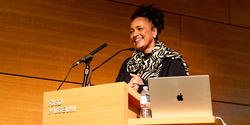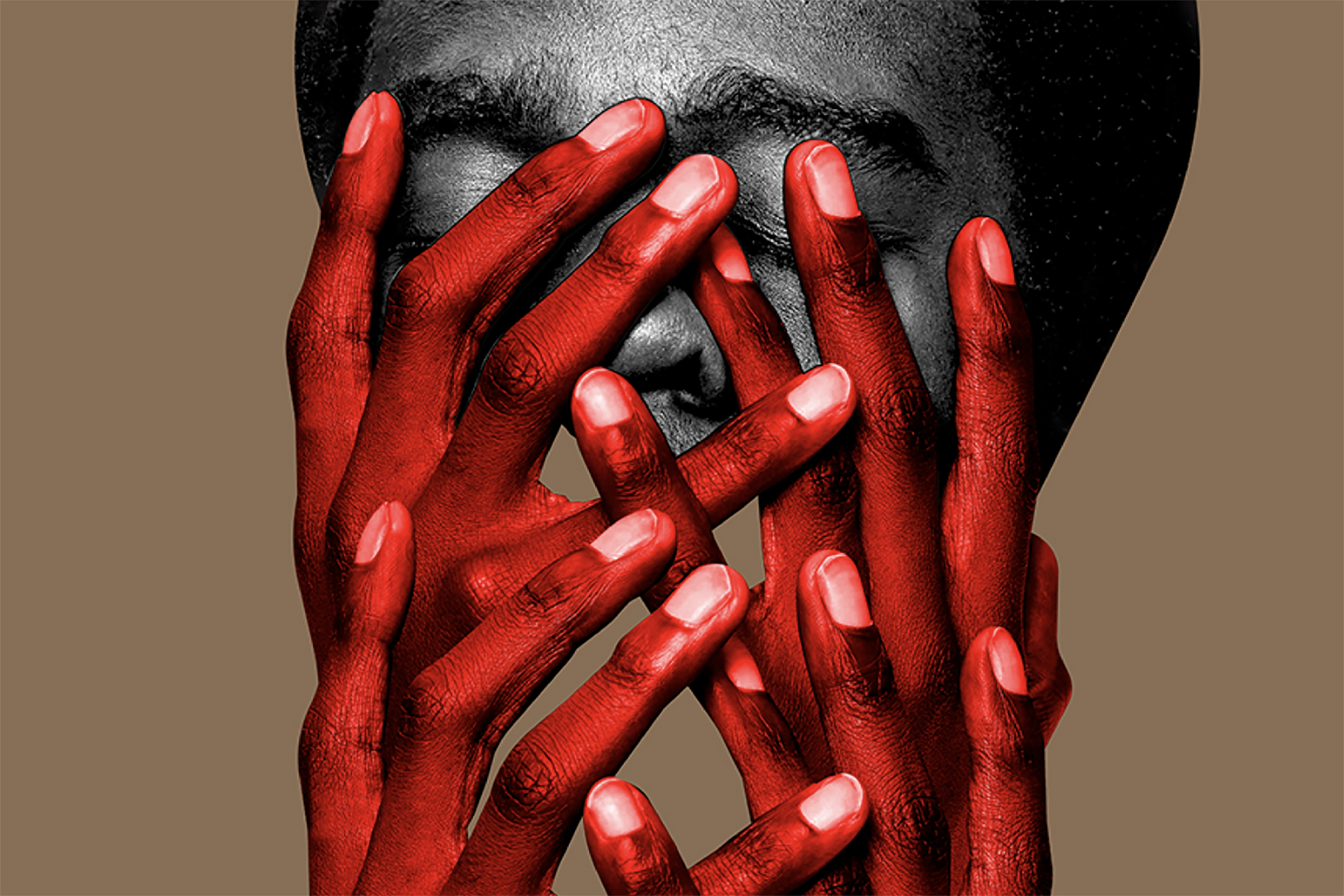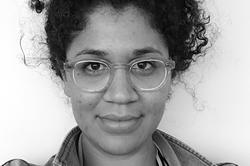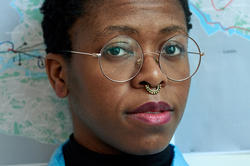A brief interview with one of RISD’s recently hired Schiller Family Assistant Professors in Race in Art and Design.
Architecting a New Future

The Architecture department kicked off its spring lecture series in late February with visiting architect/educator/novelist Lesley Lokko, founder and director of the African Futures Institute (AFI) in Accra, Ghana, an independent postgraduate school of architecture and platform for public events. Lokko spoke to a crowded house in RISD’s Metcalf Auditorium about the global architecture community’s reaction to worldwide racial justice protests sparked in 2020 by the killing of George Floyd.
“If institutions have the courage to confront their own demons, there’s a richness in the work that emerges.”
“The response has largely been one of confusion,” she says, “characterized by anxiety and institutional vulnerability as well as a desire to do the right thing without being clear about what that might look like. If institutions have the courage to confront their own demons, there’s a richness in the work that emerges,” she adds.

Lokko taught in the US, England, South Africa and Australia before returning to her home country of Ghana in 2020. She spoke to RISD’s diverse international community about Africans’ unique sense of obligation to explain their identity to outsiders. Paraphrasing the novel Elizabeth Costello by South African-born Nobel Laureate J.M. Coetzee, she notes that “The English novel is written by English people for English people, and the Russian novel is written by Russians for Russians. African novelists seem to be glancing over their shoulders at the foreigners who will read them, interpreting Africa for outsiders and focusing on explanation rather than exploration.”

Lokko marvels at architecture’s profound impact on the world. “From public health to wealth, from historical analysis to avant-garde notions about the future, it is a uniquely broad and ambitious discipline that allows us to confront what we already know, yet at the same time imagine what we don’t,” she says.
“Architecture is a uniquely broad and ambitious discipline that allows us to confront what we already know, yet at the same time imagine what we don’t.”
She goes on to describe the work of the architect as “a fundamental act of translation” and one that is uniquely suited to diasporic culture. “There’s not a single African alive who doesn’t speak more than one language,” she says. “That act of translating an idea to a drawing, a drawing to a model, and a model to a building in order to make something new is part of architecture’s DNA.”

So, how is Lokko attempting to rebuild the notion of architecture education in Ghana without falling into the same exclusionary and elitist traps that long-standing institutions worldwide are trying to extricate themselves from? “We’re at a moment of reckoning,” she declares. “The speculative space of the future begins with a new understanding of representation.”
Lokko sees architecture education as a kind of fiction in the best possible sense of the word. “It’s a means of exploring difficult and complex issues about who we are and who we want to be,” she explains. “Our work is our truth. The job of the academy is to protect the space in which those truths can be tried, tested and—above all—told.”
—Simone Solondz / images courtesy AFI
The speaker series continues on April 14 with Cornell University faculty member Sean Anderson, co-organizer of Reconstructions: Architecture and Blackness in America at MoMA.
March 3, 2022


